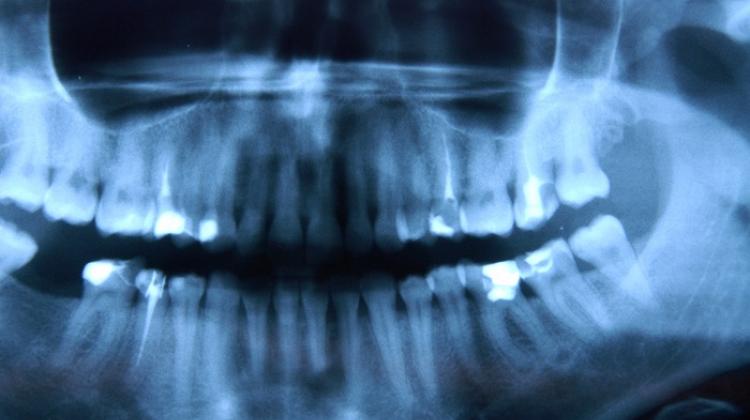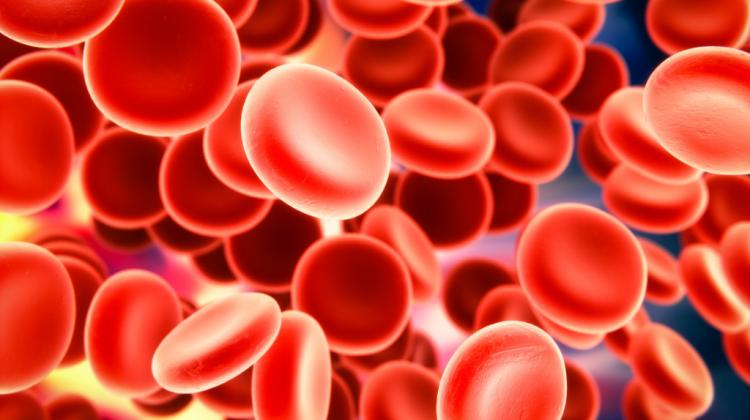Stem cell therapy for amyotrophic lateral sclerosis - good results of doctors from Olsztyn

Doctors from the University Hospital in Olsztyn, who for several years have been doing research on the use of stem cells in patients with amyotrophic lateral sclerosis, have found that in approx. 70 percent patients they were able to slow the progression of the disease.
The team of neurologists and neurosurgeons from the University Hospital in Olsztyn presented the results of their research last week at an international scientific conference in Olsztyn. "The results we have obtained complement those obtained by the world\'s leading research centres in Italy and the United States. Stem cells are big hope for the treatment of ALS and therefore research in this area is very intensive" - told PAP Prof. Wojciech Maksymowicz, chair of neurology and neurosurgery at the clinical hospital in Olsztyn.
Olsztyn doctors gave stem cells to more than 80 patients suffering from amyotrophic lateral sclerosis (ALS). Patients were divided into groups. First group received stem cells obtained from the patients\' own bone marrow, isolated and propagated in the laboratory, the other group received the stem cells from umbilical cords (Wharton\'s jelly). To some patients doctors administered stem cells only once, another group was given them several times.
Prof. Maksymowicz told PAP that researchers had already summarizes the first stage of treatment, single administering of stem cells from marrow to the patient. In this group, 70 percent treatment efficacy was achieved. "The effectiveness lies in the fact that the progression of the disease has been slowed down. In different patients slowdown occurred to a different extent - some did not respond at all, others had an average response, and there was a group above the average, patients who responded better than others" - said Prof. Maksymowicz.
Olsztyn doctors not yet know why ALS patients react differently to stem cell therapy. According to their preliminary assessment, the age of the patients who participated in the experiment did not have an effect.
Doctors from the clinical hospital in Olsztyn are now preparing for the final stage of research that will consist in the administration of stem cells from the bone marrow to patients, and the administration will be fractionated, repeated every 2-3 months, and between dosing stem cells will be frozen. "We have already completed recruitment for this stage of research, interest in the program was enormous" - told the PAP neurologist Tomasz Siwek, a member of Prof. Maksymowicz\'s team.
"We will have complete results of our research in a few years" - said Prof. Maksymowicz and added that doctors observe patients for six months before administering stem cells and for another six months after administration. "Unfortunately, not all patients survive this period" - said Prof. Maksymowicz. He added that from the first group of 30 people, 25 people survived the follow-up period.
Tomasz Siwek told PAP that because there is no biological marker that would indicate the stage of the disease, doctors evaluate treatment effects based on survival time and maintaining the ability to breathe without the aid of medical devices. "Independent ventilation is a factor that quite significantly determines the quality of life" - the doctor said. He added that in ALS progression of the disease "is linear, which means that the patient\'s condition deteriorates at a steady pace". "Determining that a factor, in this case, the application of stem cells, changes the course of the disease by slowing its course, shows the effectiveness of this factor" - explained Siwek.
Olsztyn doctors received the funds for research on the use of stem cells in patients with ALS from a grant from the National Centre for Research and Development.
Amyotrophic lateral sclerosis is an incurable disease involving the destruction of the nerve cells responsible for the work of muscles, including the respiratory muscles. The disease has a different pace of development and leads to death of the patient. Stem cell therapy only slows the progression of paralysis, but it does not restore the function of damaged nerves.
Dr. Siwek told PAP that patients with ALS are fully aware of what is happening to them during the whole period of the disease. "These patients suffer enormous mental anguish, they realize that at a certain stage of the disease their functioning is totally dependent on others" - the doctor said.
PAP - Science and Scholarship in Poland
jwo/ pz/ mrt/
tr. RL
Przed dodaniem komentarza prosimy o zapoznanie z Regulaminem forum serwisu Nauka w Polsce.


















